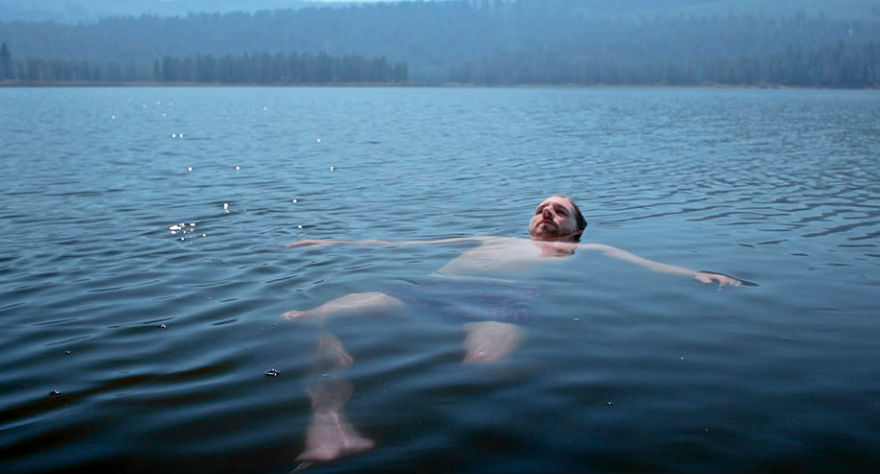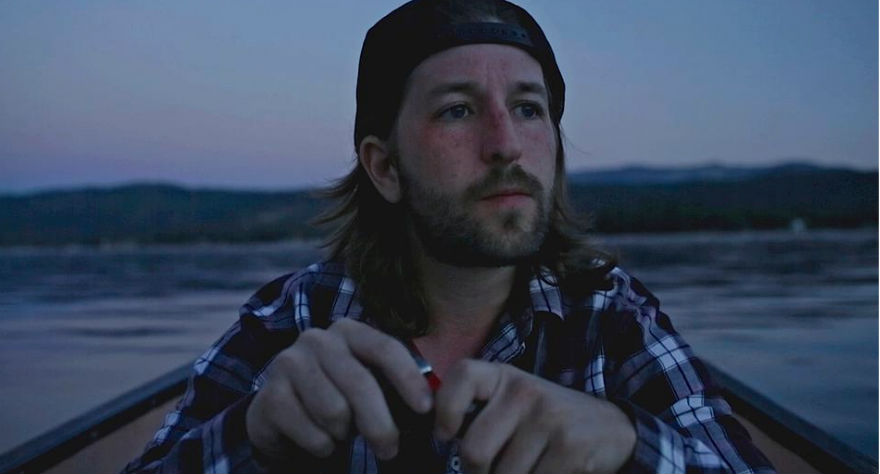
A reluctant man-child learns to try again in this subtle, aptly realized film about love and loss.

A reluctant man-child learns to try again in this subtle, aptly realized film about love and loss.
Musician Sufjan Stevens creates serene melodies that float along like the rippling of a rock over water. It’s only when listening closely to his lyrics that his love for working out the complex dualities of imperfect relationships with family and lovers becomes apparent. There probably couldn’t be a more fitting song than Steven’s “Futile Devices” to open up Echo Lake, a quiet and introspective character study of 30-year-old Will Baxter (Sam Zvibleman), whose personal relationships have become not unlike unstable towers of Jenga blocks—one bad move away from utter collapse.
Will’s reached the point where hitting the play button on his voicemail is physically exhausting. Although it’s never fully explained, he’s hit a wall with his long-time girlfriend (Christine Weatherup), who in the film’s early quarter utters those famous last words: “I can’t do this anymore”). His young brother, in a slightly condescending tone, badgers him to follow up on signing paperwork regarding a cabin on Echo Lake, a family vacation home left to him in his father’s will. For his part, Will’s solution to dealing with the death of a parent he’s had a conflicted past with is to not deal with it all. As more of an avoidance mechanism than anything, Will decides to head up to the cabin. The miles it takes to make the drive feel like as much of an escape as the bottles of booze he’s consuming in steady intervals. When Will gets to the lake, nature, time and silence begin to heal him in that way only nature, time and silence can.
Echo Lake marks the directorial debut of Jody McVeigh-Schultz and Zvibleman’s acting debut. Both ease into their roles as if the story is their own. McVeigh-Schultz also supplies the script, and it’s a winner. The film has a way with dialogue—Will’s chats with man-child friends who still drink on weeknights, half-hearted, flirty quips from a girlfriend who has probably become more of a friend, and funny if not slightly tragic negative self-talk sound natural and relatable.
McVeigh-Schultz lets cinematographer Andy Rydzewski and composer Joe Minadeo set the mood, with a complete indulgence in beautiful, soft, de-saturated long shots of nature, allowing us to feel as immersed in Will’s retreat as he does. The music is wandering and glimmering, urging thoughts to simmer as Will takes walks up hills and wades through brushy terrain.
But the script never hits us over the head with that same sentimentality, much to its credit. As the movie progresses, we feel that Will is crawling out of his negative head space. There aren’t any heartfelt soliloquies or dramatic voiceovers of diary entries here. Rather, we follow the gradual shift in tone of his daydreams: the longer he stays at Echo Lake, the more the focus of his memories shifts from annoyances with his ex-lover to tiny moments of joy they shared. I appreciate a screenplay that doesn’t simply tell you that, but helps you feel it. Getting away to reset your mind and spirit doesn’t ever solves one’s problems; it just gives a person the second wind they need to face the music.
I loved this movie, and I don’t often say that so explicitly in a review. The script captures the humanity of an imperfect character more prone to half-heartedly respond to his life and environment rather than be proactive and engaged in it. Zvibleman never pushes too hard at Will’s emotional baggage and hits the subtle comedic notes on point.

I was surprised to read in the film’s liner notes that McVeigh-Schultz often fielded the criticism that Will should be more likable, because I think Will’s character, thorns and all, is the movie. Is it a douchebag move to lie to your girlfriend about coming home and instead hang out at the bar with the guys? Sure. Should you maybe not jack off to porn on her couch as she sulks in her room with the door closed? Probably not. But Will’s not a callous guy; he’s just in that limbo state we all get in where not dealing at all seems like the less painful option. His gradual acceptance and willingness to get back to living is believable and relatable in the hands of a more than capable lead actor and an ambitious script.
However, as much as I’ll praise the script, both for its subtlety and ease with dialogue, I don’t think its delivery is perfectly executed across the board. I didn’t quite buy into the rhythm of the dialogue between Will and his girlfriend, in both the opening sequences and some of the later flashbacks. She says the right things, but the timing and connection between the two is never quite in the pocket. The scenes with Will’s friends (who clearly miss their frat days) do their job but not much more. However, interactions with a sibling pair of like-minded stoners up in the woods does work, bringing a breath of humor to what could otherwise have been a slow middle section. But Zvibleman is the star here, and since, in true Cast Away fashion, we spend the most time with him, other minor lapses are quickly forgiven.
Echo Lake succeeds in large part thanks to its relatability and willingness not to indulge in storybook endings. Like Will, we all deep down don’t want to be gigantic assholes, but sometimes we need a moment to center ourselves and get things right. For a film about moments, not gigantic belts of emotion, first-time director McVeigh-Schultz should be proud for hitting many of them right on the mark.